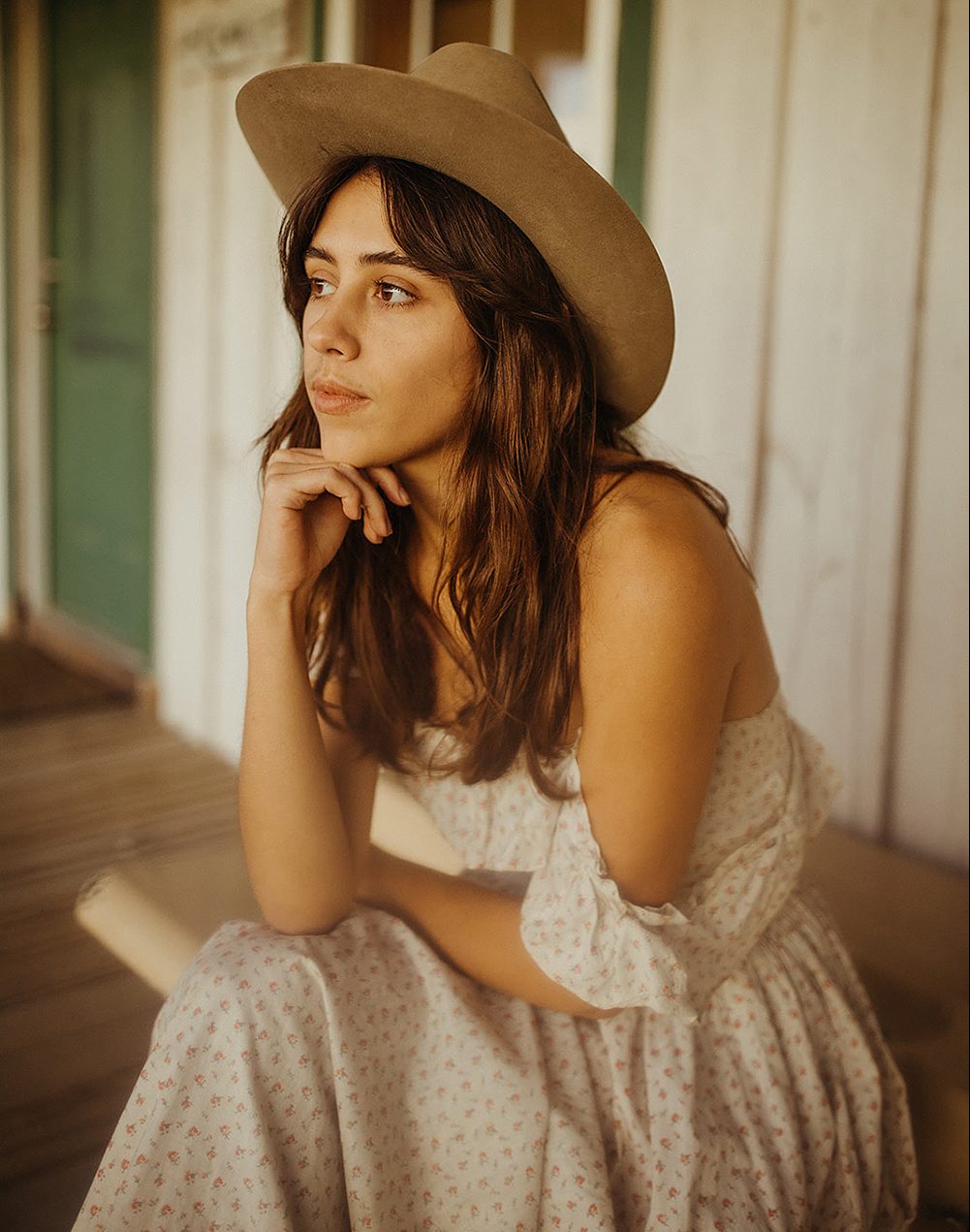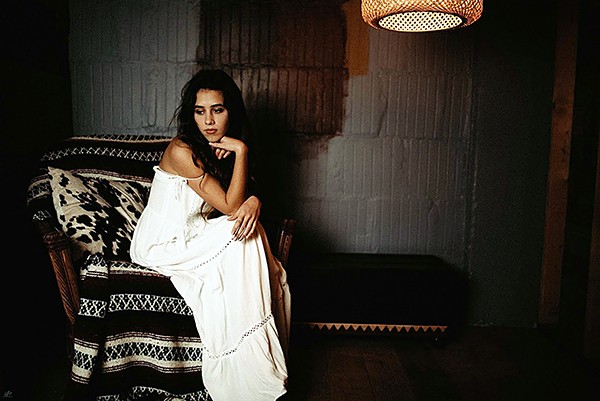Bailey Bigger is on solid footing now, and that’s a good thing. While some music fans hope their favorite artist will never get too comfortable, feeling that great art comes only from suffering, Bigger is here to show that the opposite is true. Her new album on Madjack, Coyote Red, is an object lesson in being secure enough to open up in one’s art and, thus, reveal something truer than ever.
We last spoke with her upon the release of her 2020 EP, Let’s Call It Love (Big Legal Mess), and it was no accident that we characterized those songs as “confronting trauma.” Even then, her strong alto, evoking a classic era of strong female singers like Joan Baez, was in full effect, as was her ability to turn a phrase and a melody. Now, with the imminent release of her first full-length album, those qualities are more apparent than ever, with the added bonus of “blood harmonies” — that almost inseparable harmony some singing siblings share — with her brother, Wyly Bigger, who also contributes piano. She recently touched base with the Flyer to fill us in on what’s changed.
Memphis Flyer: It feels like a lot has changed since your last release.Bailey Bigger: That was released in December of 2020, and I guess we all have gone through a transformation since then. I think Let’s Call It Love was more centered on that first breakthrough, of saying enough is enough with certain aspects of your life and deciding you want to change the way it’s going. With this record, I don’t think I’ve written anything that has felt more like me. I feel like I settled into myself in these last two years, more than I ever have, and that reflects in this album.
It’s a little more of an honest look into who I am, without all of these ordeals and setbacks fogging my mind and my heart. I’ve found myself again, but in a new form, where I can still bring back those parts of my innocence and my childhood. I’m settling into my own shoes and finding that inner joy again. I think everyone around me was feeling that simultaneously.
“Everyone” meaning the band and producer Mark Edgar Stuart?
Yeah. Mark and I have become really good friends, and I think him taking the reins really set the tone for it immediately. We had the same vision. And all the musicians he got to play on it, and Kevin Houston engineering, just set the energy for the record immediately and kind of made it this little paradise of friends. That sounds so cheesy, but it was just so fun and real and raw. I think the experience we had is captured in the music because it was really emotional, and everyone who was there experienced the same thing, which was pretty powerful.
What was Mark’s approach as a producer?
He was very hands-off. And I think we equally trusted each other. We both knew we had the same vision. So we trusted each other’s calls. He wanted it to come off as personal, as these songs of mine are, so he stepped back in all the right places. But he helped me pick out the songs, and he actually supported a lot of songs that I was down on. That gave me confidence to create what this is. I don’t think I would have chosen half the songs on the album if it wasn’t for his encouragement. He brought that outsider’s perspective.
There’s a song called “Wyly,” which is about my brother, obviously. It was a song I wrote for him in 10 minutes one night, when I was really emotional. I was kind of down on it, because I thought, “It’s one of those songs that I just spit out, that’s not refined enough.” Mark was the one who said, “No, no, no, this is the gold right here. You can’t recreate something that’s that raw.” He said, “I think this record’s about you showing who you are, in a genuine, down-to-earth way.”
Bailey Bigger and band will play a free record release show on Friday, April 1st, at Hernando’s Hide-A-Way, 8 p.m.

 Adrian Berryhill
Adrian Berryhill